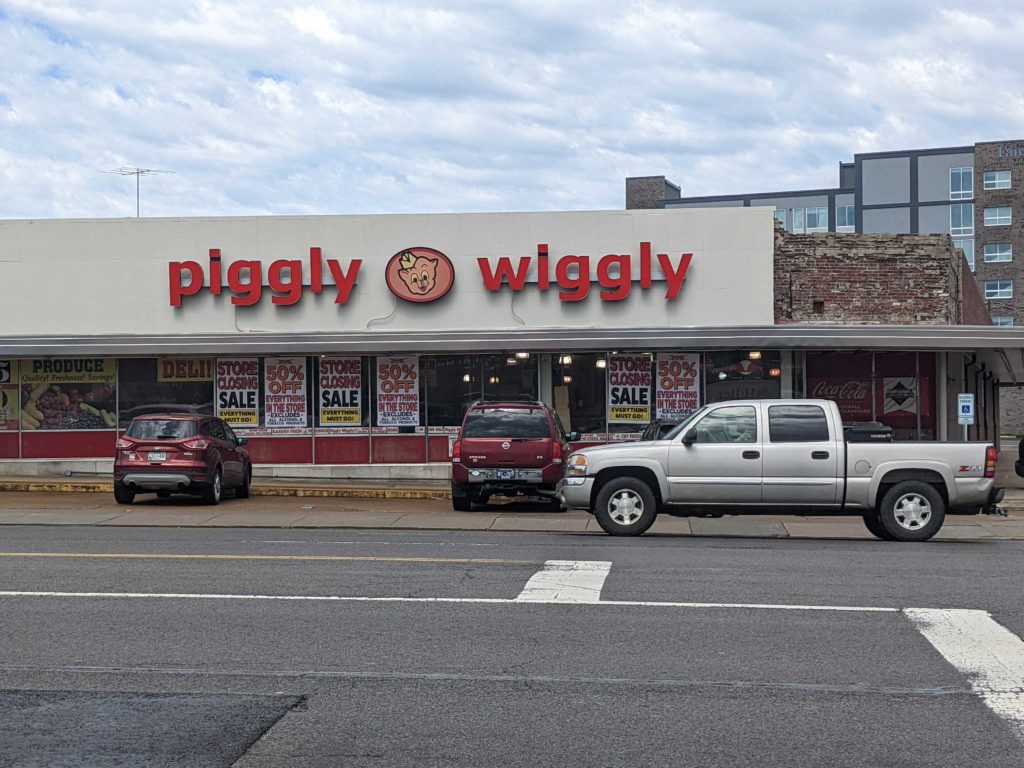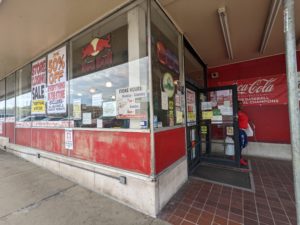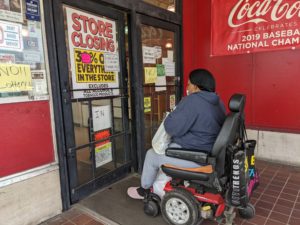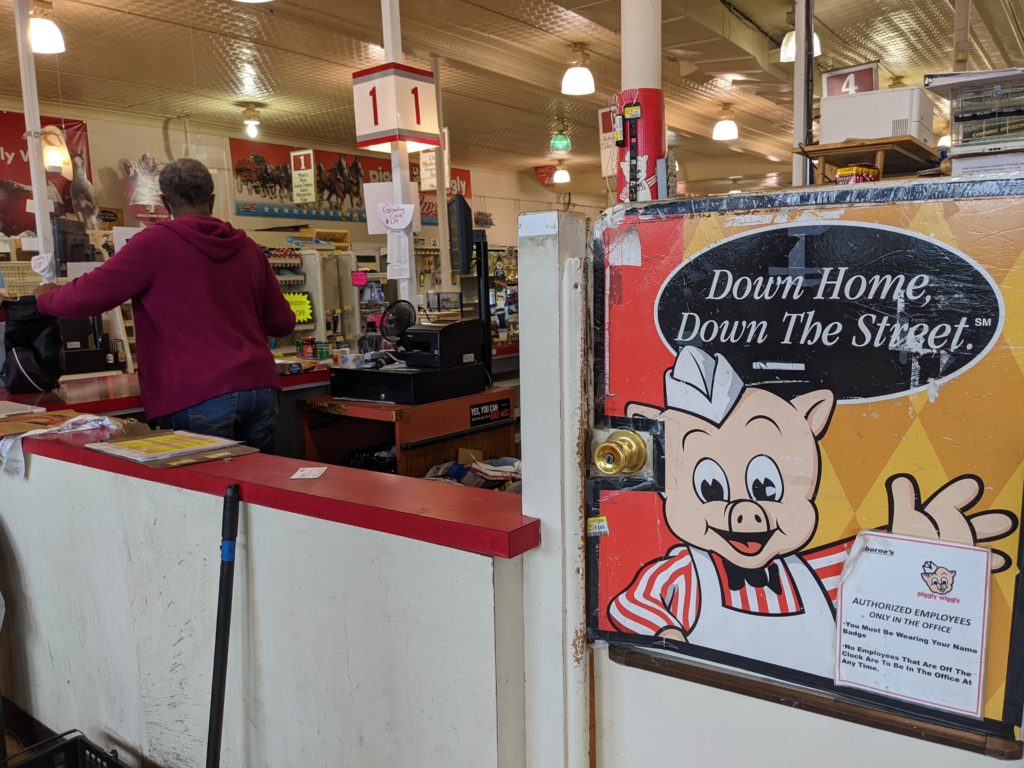
On a rainy Wednesday afternoon, Ken Blair went on his routine stroll to Piggly Wiggly on Nashville’s West End. He came to buy a box of matches, but really it was an excuse to catch up with some of his favorite people.
“Everybody down here is on a first name basis,” Blair said. “It’s like a family atmosphere.”
 Julia Ritchey WPLN News
Julia Ritchey WPLN NewsA customer exits the Piggly Wiggly at 2900 West End Ave. in Nashville.
Every day, businesses open and close, but rarely does the loss of a chain store cause so much heartache. That’s exactly what’s happened for this West End grocer.
The beloved Piggly Wiggly plans to close its doors for good at the end of the week. Although the chain has two more locations in Nashville and hundreds more across the South, community members say the closure feels personal.
“It just won’t be the same without this wonderful, old, crazy place,” Threk Michaels, a longtime employee, says.
 Julia Ritchey WPLN News
Julia Ritchey WPLN NewsManager Lee Gattis says this job has been different than other retail gigs he’s held before. He says they made a point of making customers feel valued.
The fate of the Piggly Wiggly on West End is the latest in a series of closings that have diminished the chain’s presence over the last few years. Stores in South Carolina and Mississippi have also recently shuttered, raising concerns about potential food deserts.
Piggly Wiggly has a long history in Tennessee. Started in Memphis in 1916, the supermarket is known for creating the first self-service checkout line and price tags for each and every item in the store.
The corner market wasn’t always a Piggly Wiggly, but it has housed a grocery store of some kind for nearly 70 years. So it came as a shock to community members when they learned of plans to possibly convert the building into apartments and retail space.
Part of why it’s hard for customers to say goodbye to Piggly Wiggly is because the store was more than a grocer. Lee Gattis, the manager, says it was intentional to make sure shoppers can find a range of items, from sewing kits to hardware tools.
“People living in apartments and houses close by, they don’t just need chicken and pasta. They also have to fix their sink or whatever happens,” Gattis said.
A loss for residents with mobility issues
 Julia Ritchey WPLN News
Julia Ritchey WPLN NewsResidents in the nearby public housing building, Parthenon Towers, say Piggly Wiggly’s closure will make it harder for them to get groceries.
The abrupt closure is especially tough for those who live in nearby Parthenon Towers, a public housing building for the elderly and people with disabilities.
Gwendolyn Sutton, a Parthenon tenant, has a hard time walking and relies on a motorized wheelchair to get around. Still, Sutton says she travels to Piggly Wiggly about three times a day, partly to run errands for her neighbors who have an even harder time commuting.
Sutton says she and other residents at Parthenon Towers don’t know yet how or where they’ll shop once the grocery store closes.
“Probably have to take a bus to go down to Kroger or Walmart, or pay someone to take you,” she said.
Others say they’ll miss the employees who made it a priority for customers to feel cared for and valued. Caroline Malone, another customer, said she drives 20 minutes twice a week to shop at the Piggly Wiggly on West End, mainly for that reason.
Malone added, “Just the people in general and the type of service and hometown feeling you get when you’re here, it’ll be missed, truly missed.”
 Julia Ritchey WPLN News
Julia Ritchey WPLN NewsCustomers continue to trickle in during the store’s final days. The store will close by the end of the week.

